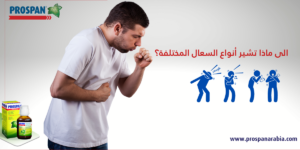
With different illnesses, we experience different types of cough. Each has distinct characteristics that doctor can use combined with other symptoms to help identify the cause and accordingly make the right diagnosis.
The types of cough are:
- Dry cough may be caused by an allergy, cold, flu, cough.
- Wet, productive cough could be the result of pneumonia, bronchitis, or the flu.
- Wet, nonproductive cough may also suggest a cold, flu, or bronchitis.
- Painful cough is frequently seen with pneumonia or bronchitis.
- Seal barking sound when coughing is a strong indication of croup in children.1
- Chronic cough may be an indication of a condition like chronic obstructive pulmonary disease (COPD) or gastroesophageal reflux , or, in some cases, lung cancer.
Accompanying Symptoms of a Cough
To further establish the cause of a cough, doctors look at not only the cough but the accompanying symptoms, as well. When meeting with a doctor, be sure to list all the symptoms you are experiencing. It is the totality of symptoms that will suggest to doctors which tests are needed to confirm the cause and direct treatment. Examples include:
- A cough accompanied by fever and chest pain may indicate pneumonia.
- A cough accompanied by head congestion, fever, shivers, and body aches are the classic features of the flu.
- A persistent cough with wheezing, shortness of breath, and chest tights are symptoms we would see with COPD.2
- A dry cough at night accompanied by bad breath, hoarseness, and a sudden increase in saliva would suggest to a doctor you have GERD.
- A bloody cough accompanied by fever, night sweats, and weight loss may be suggestive of tuberculosis.
- If you are coughing up pink, frothy mucus or your child is choking and having trouble breathing or swallowing. Go to the emergency room immediately.
Choosing the Right Cough Medication
Expectorants are designed to help bring up mucus when you cannot clear the congestion with a cough. These are the most useful when you have a wet, productive cough. Just like Prospan® with its 4-Fold Power. It liquefies trapped mucus, Helps you breathe more freely, Alleviates inflammations, and Relieves coughing.
Suppressants relax the cough reflex and are helpful when a cough is starting to cause pain. Suppressants work better for some people than others. If you have a productive cough, it is best not to take medications that suppress it. Coughing is the body’s normal reaction to any foreign object in the lungs, including dust and mucus. If you have chest congestion, coughing will help clear lungs, allowing you to heal more quickly. Suppressing it can lead to worsening of symptoms and the development of pneumonia.
With Prospan, Stay cough free…
